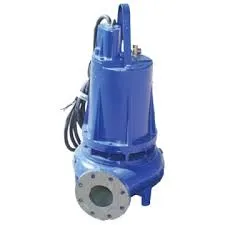English
- Afrikaans
- Albanian
- Amharic
- Arabic
- Armenian
- Azerbaijani
- Basque
- Belarusian
- Bengali
- Bosnian
- Bulgarian
- Catalan
- Cebuano
- Corsican
- Croatian
- Czech
- Danish
- Dutch
- English
- Esperanto
- Estonian
- Finnish
- French
- Frisian
- Galician
- Georgian
- German
- Greek
- Gujarati
- Haitian Creole
- hausa
- hawaiian
- Hebrew
- Hindi
- Miao
- Hungarian
- Icelandic
- igbo
- Indonesian
- irish
- Italian
- Japanese
- Javanese
- Kannada
- kazakh
- Khmer
- Rwandese
- Korean
- Kurdish
- Kyrgyz
- Lao
- Latin
- Latvian
- Lithuanian
- Luxembourgish
- Macedonian
- Malgashi
- Malay
- Malayalam
- Maltese
- Maori
- Marathi
- Mongolian
- Myanmar
- Nepali
- Norwegian
- Norwegian
- Occitan
- Pashto
- Persian
- Polish
- Portuguese
- Punjabi
- Romanian
- Russian
- Samoan
- Scottish Gaelic
- Serbian
- Sesotho
- Shona
- Sindhi
- Sinhala
- Slovak
- Slovenian
- Somali
- Spanish
- Sundanese
- Swahili
- Swedish
- Tagalog
- Tajik
- Tamil
- Tatar
- Telugu
- Thai
- Turkish
- Turkmen
- Ukrainian
- Urdu
- Uighur
- Uzbek
- Vietnamese
- Welsh
- Bantu
- Yiddish
- Yoruba
- Zulu
Telephone: +86 13120555503
Email: frank@cypump.com
Oct . 05, 2024 09:15 Back to list
slurry pump indonesia
A Comprehensive Overview of Slurry Pumps in Indonesia
Slurry pumps play a critical role in various industries across the globe, and Indonesia is no exception. As one of Southeast Asia's most resource-rich nations, the demand for efficient material transport solutions in mining, construction, and agriculture sectors has driven the growth of slurry pump usage. This article aims to provide an in-depth look at the significance, applications, and advancements in slurry pumps within the Indonesian context.
Understanding Slurry Pumps
Slurry pumps are designed to handle mixtures of liquid and solid particles, known as slurries. These pumps are essential for transporting abrasive, viscous, and corrosive materials. They differ from standard pumps due to their robust construction and specialized design, which include features such as larger impeller diameters and enhanced wear resistance, enabling them to manage tough materials without frequent failures.
The Importance of Slurry Pumps in Indonesia
Indonesia's diverse natural resources, including rich mineral deposits, coal reserves, and agricultural produce, create a substantial marketplace for slurry pumps. Mining operations, particularly gold, nickel, and coal extraction, rely heavily on these pumps for effective transport of mined materials. With the increased global demand for minerals, the mining industry in Indonesia is expanding, creating further opportunities for slurry pump suppliers and manufacturers.
Moreover, the agricultural sector in Indonesia benefits from slurry pumps for the effective transportation of bio-waste products, fertilizers, and organic materials. Efficient pumping solutions contribute to improved productivity and sustainability in farming operations, which is crucial for Indonesia’s economy, given its position as a leading agricultural producer in the region.
Key Applications of Slurry Pumps in Indonesia
1. Mining Industry In mining, slurry pumps are used for transporting ore slurries, tailings, and wastewater. The ability to withstand the chemical composition of contaminated water and solid particles ensures minimal wear and tear, prolonging the lifespan of the pump.
slurry pump indonesia

2. Construction Sector Slurry pumps play a vital role in managing cement and other materials on construction sites. Their use in concrete mixing and transporting sludge from excavations is crucial to maintain project timelines and efficiency.
3. Wastewater Management As Indonesia faces increased urbanization, effective wastewater treatment has become a pressing issue. Slurry pumps are utilized in sewage and wastewater treatment plants for the efficient removal and transportation of sludge, contributing to public health and environmental sustainability.
4. Agricultural Practices In agriculture, slurry pumps facilitate the transportation of fertilizers and manures. They help in irrigation processes, making it easier to ensure crops receive necessary nutrients and water, enhancing overall farm productivity.
Advancements in Slurry Pump Technology
The slurry pump industry in Indonesia is witnessing advancements driven by technological innovations. The introduction of smart monitoring systems is enabling operators to track pump performance in real time, leading to predictive maintenance strategies and minimizing downtime. Moreover, the trend towards manufacturing energy-efficient pumps is crucial in reducing operational costs and environmental impact.
Local manufacturers are also investing in research and development to produce pumps that are specifically designed for the unique challenges posed by Indonesia’s geographical conditions. This localized approach ensures that the pumps can efficiently handle high viscosity and solid-laden fluids typical in the region's mining and agricultural industries.
Conclusion
In conclusion, slurry pumps are an essential asset in various industries in Indonesia, playing a pivotal role in mining, construction, agriculture, and wastewater management. As the country continues to develop its natural resources and improve its infrastructure, the demand for reliable and efficient pumping solutions will only rise. With technological advancements and a focus on sustainability, the future of slurry pumps in Indonesia looks promising, reinforcing their importance in driving economic growth and meeting the challenges of a rapidly evolving industrial landscape.
-
ISG Series Vertical Pipeline Pump - Chi Yuan Pumps Co., LTD.|Advanced Hydraulic Design&Energy-Efficient Solutions
NewsJul.30,2025
-
ISG Series Vertical Pipeline Pump - Chi Yuan Pumps Co., LTD.
NewsJul.30,2025
-
ISG Series Vertical Pipeline Pump - Chi Yuan Pumps Co., LTD.|energy-efficient fluid handling&industrial durability
NewsJul.30,2025
-
ISG Series Vertical Pipeline Pump - Chi Yuan Pumps | Advanced Engineering&Industrial Efficiency
NewsJul.30,2025
-
ISG Series Pipeline Pump - Chi Yuan Pumps | High Efficiency, Energy Saving
NewsJul.30,2025
-
ISG Series Vertical Pipeline Pump-Chi Yuan Pumps|High Efficiency&Reliable Performance
NewsJul.29,2025










